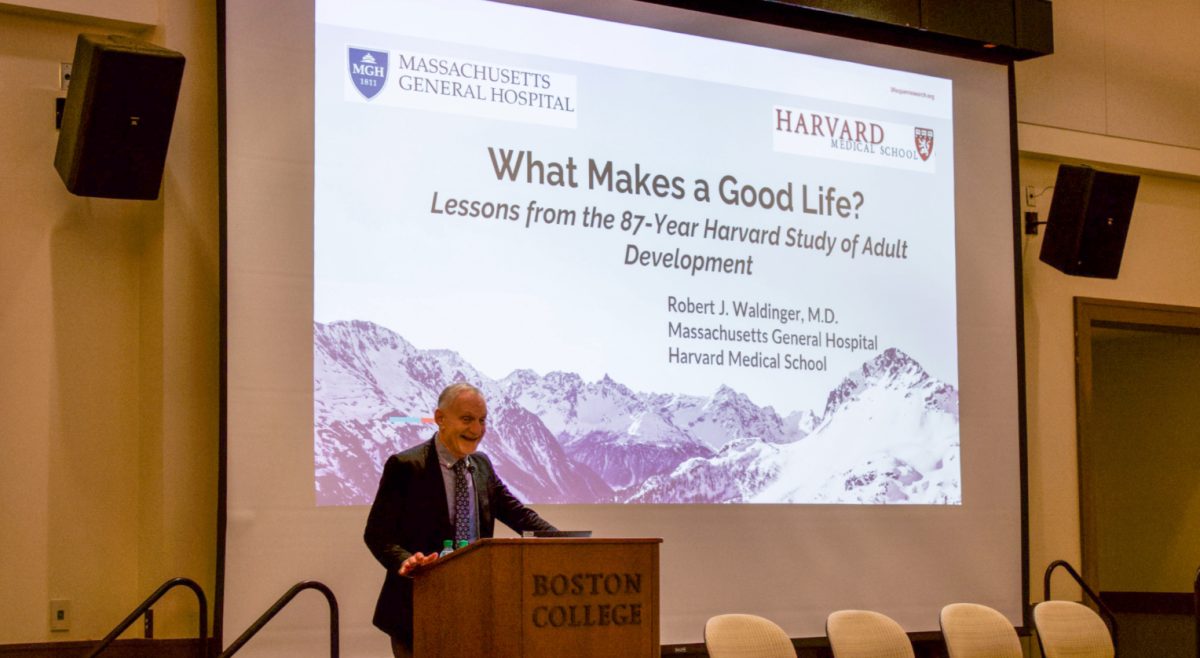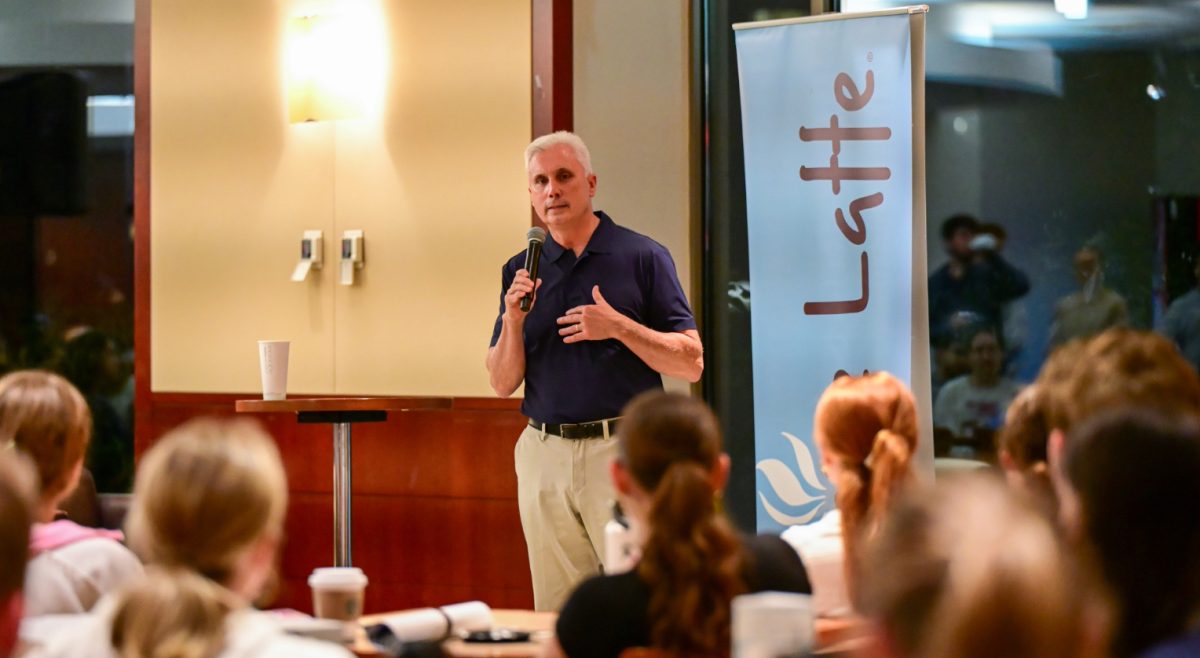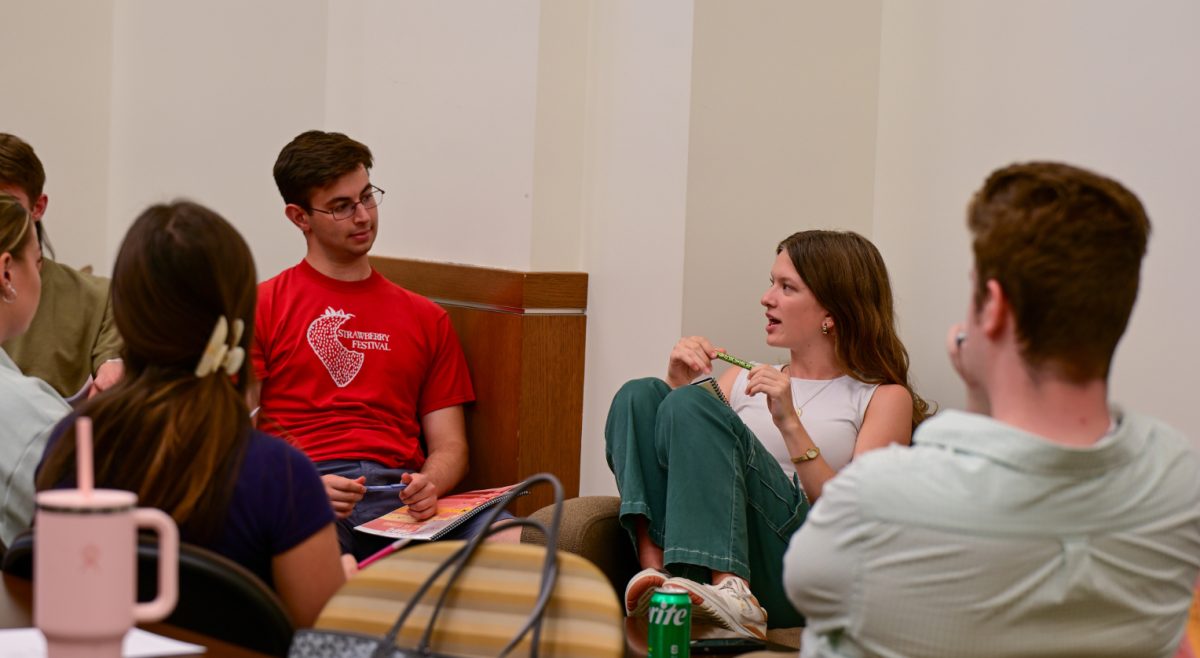The Undergraduate Government of Boston College reformed its Senate ahead of the 2019-20 academic year, a change that included a redistribution of student representatives and a reorganization of committee structure. The changes are aimed at streamlining advocacy, according to Tiffany Brooks, UGBC vice president and MCAS ’21.
The Senate will now consist of only 33 senators, a reduction of seven seats. The new structure allocates a total of five senators for each grade—previously, each received four. Just like last year, there will continue to be five at-large senators and one senator for transfer students and international students each. Each grade will elect their own representatives, while the at-large, transfer, and international promotions will be voted on by the entire student body.
Delegates from the AHANA+ Leadership Council (ALC), the GLBTQ+ Leadership Council (GLC), and the Council for Students with Disabilities (CSD) will also keep their seats.
There will continue to be senators representing first-generation students and the Montserrat Coalition, a University Mission and Ministry initiative that aims to provide financial aid, mentorship, and support for students coming from low-income backgrounds. The First-Generation Club and Learning to Learn fill the former seat, the Montserrat Coalition the latter.
Most of the alterations come through the elimination of “titled” seats in favor of more general positions, according to Brooks. These positions, which each represented a group of clubs with a similar focus, included senators for political organizations; service organizations; environmental clubs; specific interests; intercultural clubs; Campus Ministry; and music, arts, and performing groups.
UGBC also removed representatives for each of the four schools this year.
New to the Senate this year are representatives for student-athletes, who will receive one senator. The Student Athlete Advisory Committee, a University-organized committee featuring a representative from each BC sports team, will appoint a student to the student-athlete seat.
Brooks, who was the Music, Arts, and Performance Groups senator before becoming vice president, said that she hopes that the realignment toward more general titles will spark broader advocacy efforts.
“Once you get rid of the title seats, it’s going to force people to think more about why they want to run when they make their platforms,” Brooks said. “Rather than say ‘Oh, I’m running for the Music, Arts, and Performance seat, here’s what I’m going to do for the arts,’ they are going to have more free reign over their platform.”
This goal also inspired a change in the committee system, according to Brooks. Previously, the Senate housed six large committees: Academic Affairs, Intersections, Interpersonal Health and Wellness, Campus Improvements, Environmental and Sustainability, Conduct and Student Rights, and Mental Health.
Under that system, senators were limited by the committee they had been assigned to, stripping them of the opportunity to explore different interests or work toward campaign promises, according to Brooks.
“Once you were elected that senator, you were also a part of a committee that usually had nothing really to do with your area,” Brooks said. “So once you got on the committee, you were kind of just pigeonholed into doing that work. And so a lot of the time, the community that you represented under your title kind of fell to the wayside.”
Starting this year, incoming senators will choose from a wide array of “areas,” which will be distributed between two large umbrella committees: Institutional Innovation and Intersectional Experience. Brooks said that each senator will submit a ranked list of their area preferences before the Senate convenes, but added that senators will have the opportunity and the time to expand their focus to a greater degree.
The Institutional Innovation committee contains areas concerned with student rights and safety, arts, athletics, academic affairs, environment and sustainability, and student organizations, according to Brooks. Each area will be staffed by two senators, except student rights and safety, which will receive three senators.
The Intersectional Experience committee includes areas concerned with racial and cultural inclusion, LGBTQ+ and gender inclusion, accessibility, socioeconomic inclusion, religious inclusion, and mental health, according to Brooks. Each area will be staffed by three senators.
Featured Image by Sam Zhai / Heights Staff



















